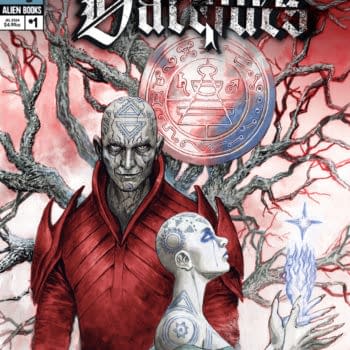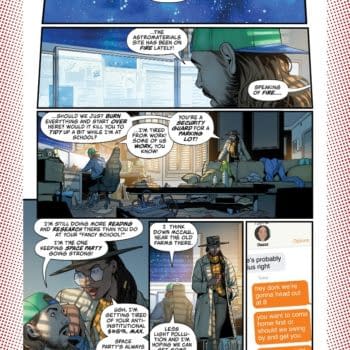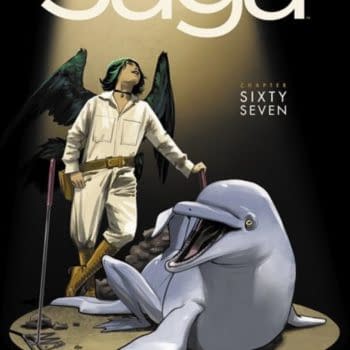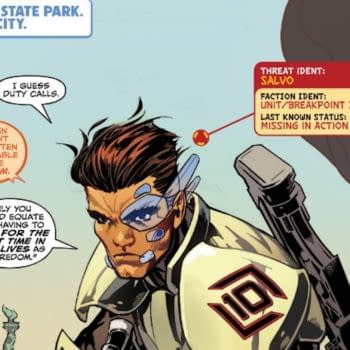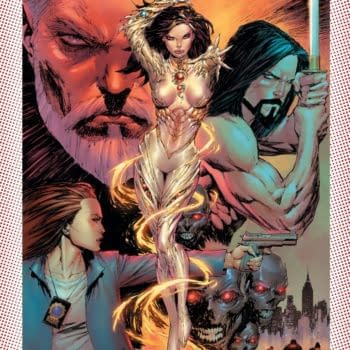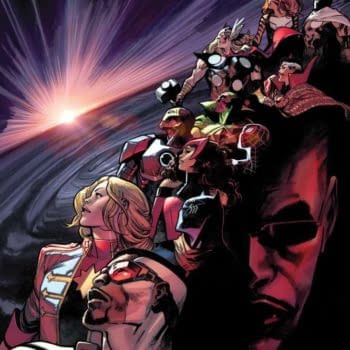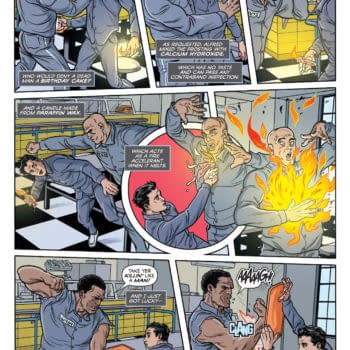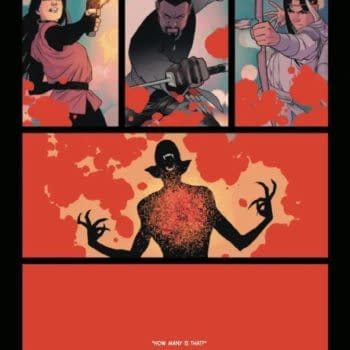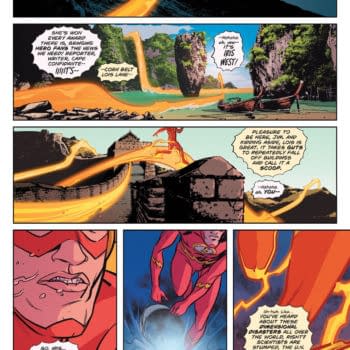Posted in: Comics | Tagged:
What's The Scoop? Journalism In Comics At WonderCon
Aaron Hale writes;
I'm old enough to remember when comics were seen as funny books: a disposable hobby that if you were still partaking in after puberty, there was something wrong with you. Since 1992, the Comics Arts Conference (CAC) has worked hard to dispose that myth, and to create an atmosphere where comics are seen as high-end art and literature that is worthy of study. In a sense, the CAC acts as an apologetics group that promotes comics not as a hobby of children but a medium that is serious and important. The conference is made up of not only scholars but also industry professionals past and present. In past panel participants have included such industry luminaries as Steve Englehart, Dennis O'Neal, and the real batman, Adam West. This year at WonderCon, the CAC had a total of nine panels, five of which I was able to attend. Depending on topic, moderator, and guests these panels were hit or miss. My personal favorite was Session #2: Comics and Journalism.
The Session #2: Comics and Journalism panel had a strong moderator in Dr. Travis Langley, author of "Batman and Psychology." Other panel guests were Dr. Sarah Boslaugh (Kennesaw State University), Alan Kistler (Comic Book Resources), Tony B. Kim (Crazy4ComicCon.com), Molly Mahan (Geekscape.net), and Michael Wothan (Comic Book Therapy). You could tell there was a great vibe between the panelists even though many of them came from competing magazines and sites. Their love of comics showed from Alan Kistlers encyclopedic knowledge to Molly Mahan cosplaying as Black Canary. In essence, it was a panel of real comics journalists exploring the topic of their fictional counterparts in the DC and Marvel Universes.
Why are so many superheroes also journalists? What do Superman, Spiderman, The Creeper, and Shazam, all have in common besides being superheroes? They're all journalists, but why? Panelist Dr. Boslaugh believes that in the 1930s and 1940s, journalism was a profession that stood for truth and justice. Molly Mahan felt that it gave the characters clarity and purpose for heroism in their alter egos; they could do more good with their writing then their powers. When not fighting super villains, these same characters could be fighting other forms of villainy. Also, why not do a job that you could be successful at by getting news breaking stories, namely those of the heroes exploits? In the example of Peter Parker, we see he uses his photojournalism career to promote Spider-Man as a hero as opposed to a menace. In reality, it might have also been a pat on the back to the newspapers that actually ran the comic strips.
Other interesting points of discussion were journalists as love interests. Once again, a pretty long list was reviewed, including Lois Lane and Vicki Vale to name a few. Dr. Boslaugh felt because it was one of the few jobs women could do back in the day that was out of the home and respectable. The other panelists chimed in on how it added a sense of allure that at any time, the hero could be found out and that in some sense, created a love triangle between heroic identity, secret identity and the female journalist. Other roles discussed were journalists as accountability, such as Ben Urich in Daredevil and Robbie Robertson in Spider-Man. Journalist as observer gives us an insight what it's like to get a bird's eye view of how everyday citizens view the phenomenon of a world with superheroes. Or even journalist as antagonist, the most well known being J. Jonah Jameson in Spider-Man.
I really enjoyed this panel and found it quite interesting. My only quips were that the time allotted for discussion was not enough and the Q&A was limited to one question. I also wish they would have discussed journalists as a narrator, and the part that role played in DC Comics: Legacies series and Marvel comics, aptly titled Marvels. In hindsight I hope that someone decides to broach this subject more fully in a book. Wondercon had something for everyone from the collector, to the intellectual, to the journalist.







